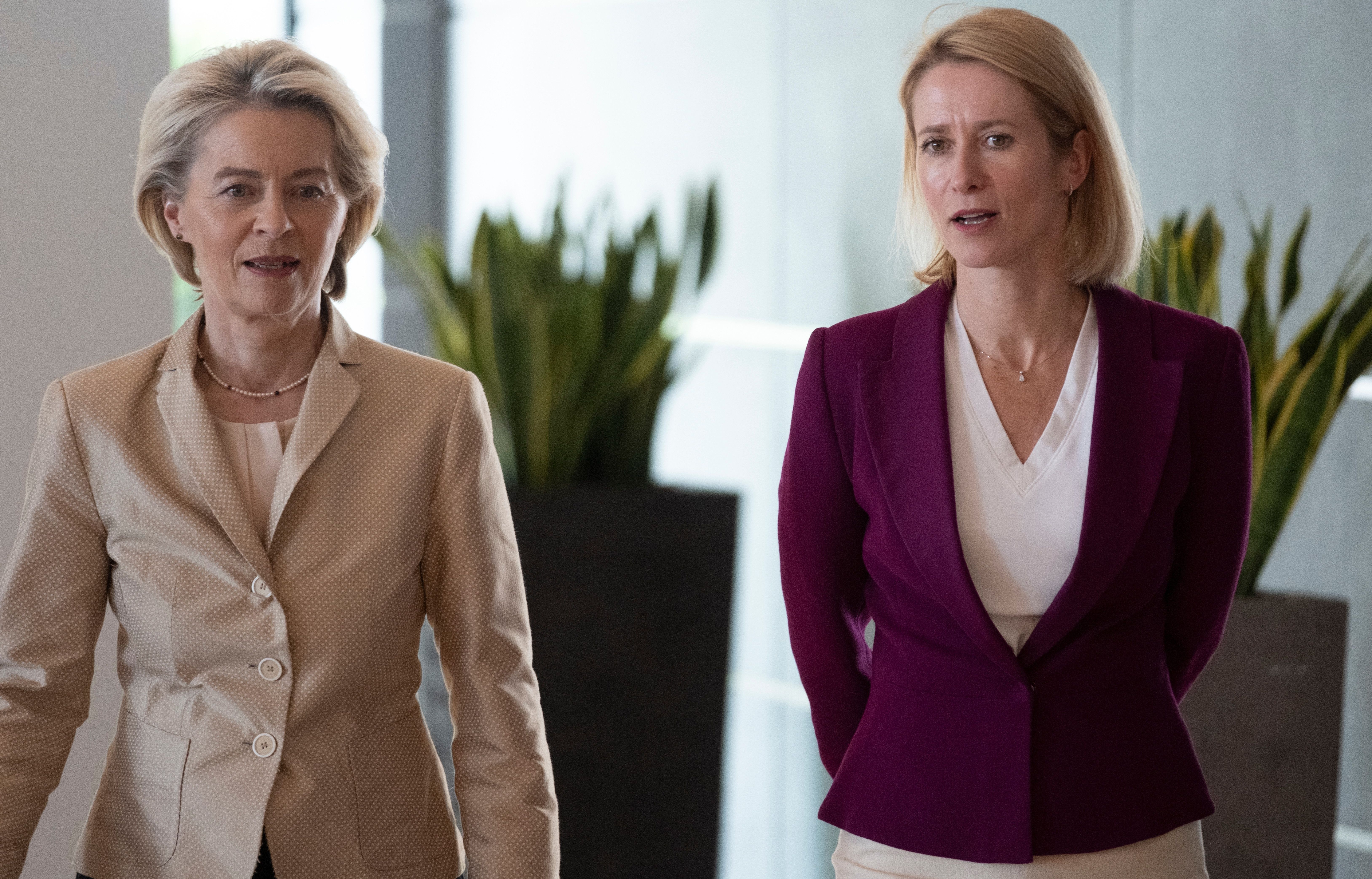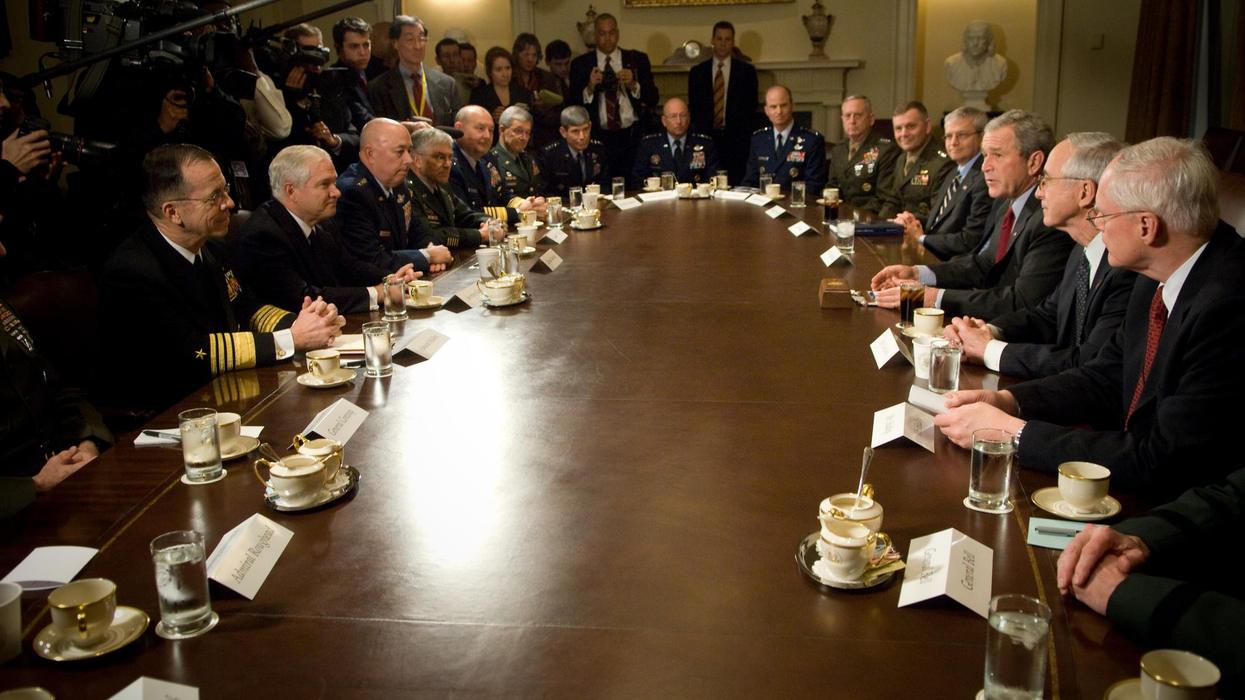Amid questions of the over-militarization of U.S. foreign policy and the illusion of global primacy, the European Union is charging headlong in the opposite direction, appearing to be eagerly grasping for an American-esque primacist role.
Last month, the European Commission, the EU’s executive body, proposed the Security Action for Europe (SAFE), a part of the EU’s sweeping, $900 billion rearmament plans. This ambition, driven by elites in Brussels, Berlin, Paris and Warsaw rather than broad support from Europe’s diverse populations, reflects a dangerous delusion: that, in the face of a purported U.S. retreat, the EU has to overtake the mantle as leading defender of the “rules-based liberal world order.”
Not everybody in the EU is on board though. Countries like Hungary, Slovakia, Italy and Spain are known for their less than enthusiastic embrace of the rearmament fervor. Last week, a voice of dissent came from the European Parliament, elected directly by the EU citizens — unlike the Commission.
The European Parliament’s Committee on Legal Affairs unanimously rejected the legal basis proposed by the Commission for SAFE, namely Article 122 of the Treaty on the Functioning of the European Union (TFEU). This is more than just an arcane legal-technocratic detail: Article 122 allows the Commission to invoke urgency to bypass the European Parliament and secure approval for its proposals with only a qualified majority in the Council. As the foreign policy decisions are taken by consensus, the purpose of this maneuver is to eliminate potential vetoes from skeptical member countries.
Historically used for crises like COVID-19, this procedure is now being weaponized by Commission hawks, led by Ursula von der Leyen, its president, to operationalize the “rearm” concept. Von der Leyen, alongside High Representative for Foreign Policy Kaja Kallas, a former prime minister of Estonia, has leaned on alarmist rhetoric, exaggerating external threats — particularly from Russia — to justify this rush. This fear-driven narrative pressures all member states to align with a Russia-centric security agenda, often at odds with their own priorities: it is true that Russia is undeniably perceived as a serious threat in the Baltic states and Poland, hence support for hardline policies, but Hungary and Slovakia, on the contrary, have long advocated for a negotiated end to the war in Ukraine. And Spain and Italy treat migration and failing states in the southern Mediterranean, not Russia, as their main security risks.
Yet the Commission’s move represents a significant overreach, sidelining the Parliament and potentially some member states, a process that undermines democracy. By invoking urgency, the Commission seeks to fast-track SAFE without the scrutiny required for such a transformative shift. The Legal Committee’s rejection of that route highlights the Commission’s failure to justify this urgency or explain why alternative legal routes were ignored.
This vote is procedural — it shouldn’t be confused with a principled stand against rearmament. In fact, the Parliament’s hawkish majority, comprising parties from the center-right and center-left, has endorsed the concept in a resolution on the matter. The opposition came mostly from the right-wing Patriots for Europe (the political group that includes the Hungarian Prime Minister Viktor Orban’s party and the French National Rally, currently the most popular party in France), the Left and a number of independent MEPs.
The vote in the Legal Committee remains focused on technicalities. Some MEPs, particularly from France, even push for a stronger “buy European” clause in SAFE to benefit the continent’s arms industry, whose lobbyists are increasingly active in Brussels. The Parliament, or its dedicated bodies, such as the foreign affairs and defense and security committees, have not so far addressed the issue with strategic clarity — such as asking questions about SAFE’s purpose, the EU’s intended adversaries, or why such a massive military buildup is necessary with such urgency.
Even more worryingly, the EU’s militarization drive exacerbates the neglect of diplomacy. While the elites are indulging in these delusions, EU citizens seem to be much more skeptical about dramatic increase in defense spending. Moreover, the EU, unlike the U.S., has neither the capability to sustain this path, nor the protections the U.S. enjoys, like being buffered by two oceans and situated between unthreatening neighbors.
Meanwhile, in its pursuit of an elusive hard power, the EU is busy squandering the soft power which used to define its global influence, turning a blind eye to Israel’s crimes in Gaza, downplaying democratic backsliding in Turkey, and groveling to autocrats like Azerbaijan’s Aliyev — all that for at best marginal gains.
A vote in the Legal Committee won’t address all these issues, but it does offer a tiny glimmer of hope. It could slow the militarization process, allowing elected representatives and member states to scrutinize SAFE’s long-term ramifications, challenge the Commission’s fear-driven overreach, and prioritize diplomacy with adversaries. If the Commission persists in its power grab, it is liable to challenge, by the European Parliament or member states, in the EU Court of Justice.
The reckless ambition to emulate U.S.-style primacy without its power or protections, risks entrenching a militarized future for Europe at the expense of its democratic principles, its diverse securit needs, and its survival in a region where missteps could prove catastrophic.
















